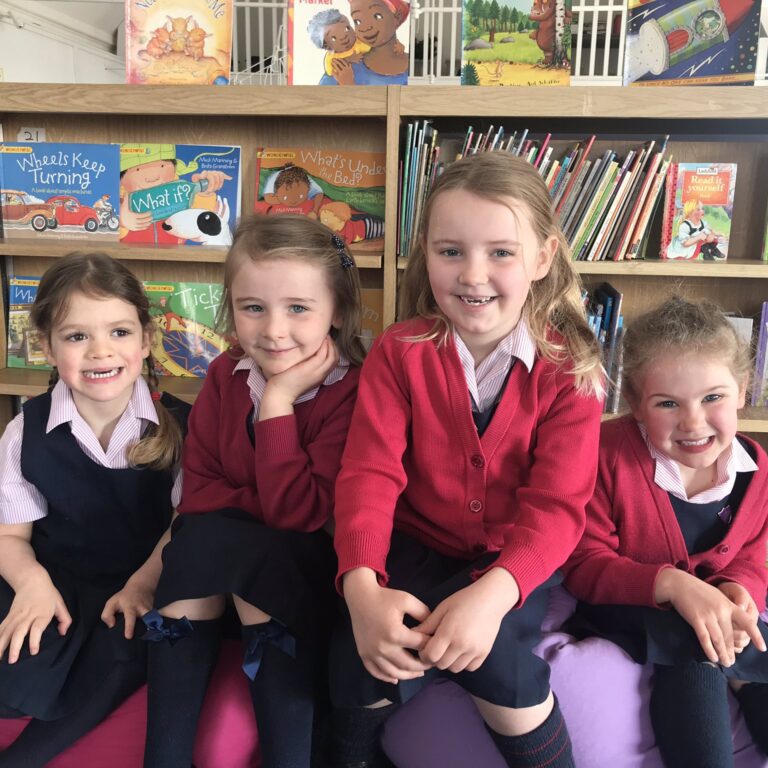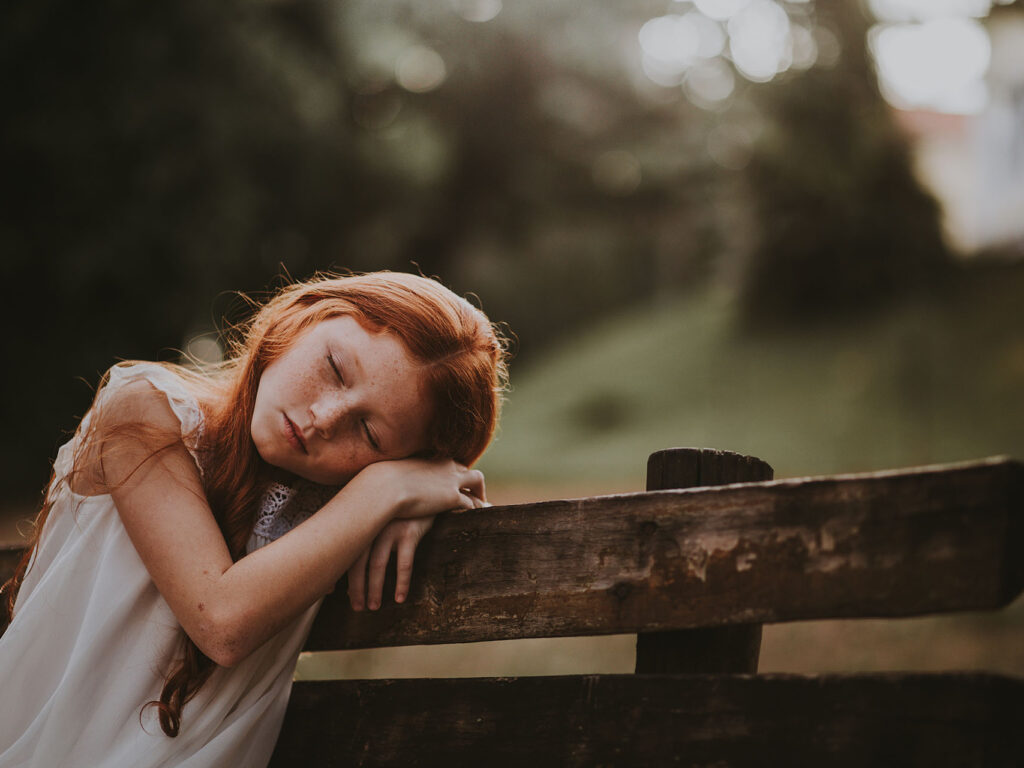At Bowdon Preparatory School, we love to see children enjoying their school work, being able to concentrate and getting the very most from their time with us. In part, these will all be due to the quality and quantity of their sleep. But why is sleep so crucial to development and learning? And how can you make sure your child is getting enough? Let’s start off by looking at the science behind sleep.
The sleep cycle
Our bodies recharge when we sleep. Typically sleep is broken into four stages, lasting around 90 minutes per cycle: Three non-Rapid Eye Movement (REM) phases followed by an REM phase. A good night’s sleep typically consists of four to five cycles.
Sleep becomes progressively deeper during the three non-REM stages. During stage three, some bodily functions slow down or stop, allowing reparative processes to take over. Energy is restored, growth and repair occur, and important brain development hormones are released. This is why sleep helps children’s brains remember, memorise and analyse information – including what they’ve learned at school that day.
This is followed by the REM phase, which begins around 90 minutes after falling asleep. The first REM stage is shorter, but your time in REM increases throughout the night. This is a highly neurological and physical period of sleep: The eyes quickly move from side to side underneath the eyelids; brain activity increases (similar to when you’re awake); breathing speeds up and becomes more irregular, and the heart rate increases. This is also when we dream.
The power of sleep
Getting enough hours of high-quality sleep fosters attention and concentration – both of which are a prerequisite for most types of learning. It’s been found that sleep impacts more than just students’ ability to perform well. It improves their ability to learn, memorise, retain, recall and use their new knowledge to solve problems creatively, along with emotional processing and judgment. Conversely, insufficient sleep can be behind a number of problems, like decreased brain development, learning problems and negative emotions. It can also contribute to weight management difficulties, growth issues and more frequent illnesses.
Is your child getting the sleep they need?
We can all agree that sleep is important for a number of developmental areas – but how much do children need? Well, this depends on the age of your child. The American Academy of Sleep Medicine (AASM) and Sleep Research Society (SRS) suggest that between the ages of three and five, they should have 10 to 13 hours of sleep (including naps) – and from the ages of six to 12, around nine to 12 hours of sleep. We know from experience that parents often underestimate these figures.
How can I tell if my child is getting enough sleep?
It’s not always clear, beyond them seeming tired at home or in school. But it can be helpful to look out for the following signs. Does your child:
- Fall asleep during the day
- Demonstrate hyperactive behaviour (especially younger children)
- Have trouble paying attention
- Struggle with school work
- Show signs of being cranky, whiny, irritable or moody
- Have behaviour problems
How can I encourage better sleep ‘hygiene’?
Aside from the obvious, like limiting drinks with caffeine in (tea, coffee, cola and energy drinks, for example) and not eating too late in the day, studies show that a good bedtime routine is key to better sleep. And at BPS, this is something that we fully endorse. Try sticking to a pattern each night – like a bath or shower followed by a story. As tempting as the TV or tablet is, avoid electronic devices, as they produce light which can supress natural sleep hormones in the brain.
More activity, better sleep
Studies have shown that children who are active during the day fall asleep faster. And those who fall asleep faster tend to sleep better and stay asleep longer at night. Encourage your child, where possible, to take part in sports and play outside. Both can help burn off energy and enable your child to feel tired at the end of the day. Even if your child is not very sporty, just going for a walk in the fresh air can be helpful. However, exercise should be avoided directly before bedtime, as the heat created by the muscles by exercise can prevent your child falling asleep.
Wake time in the morning is often overlooked, but what we don’t realise is that it sets the tone for the rest of the day. Our goal upon waking is to build up enough drive throughout the day to fall asleep easier at night. Our natural sleep rhythm is largely programmed by environmental factors so getting outside in the daylight is a great way to synch your child’s 24-hour clock.
Tips for creating a positive sleep space
Another way to promote better sleep is to make sure your child’s bedroom is a place where they feel safe, secure and calm. There are a few things you can try:
- Blackout blinds help with light evenings and mornings
- Ensure the room temperature is not too hot or cold
- Some children are settled by a nightlight, others prefer darkness
- Too many toys can be distracting – if you can, move some to another room
Are there things I should avoid?
The recommendation is that you don’t lie with your child until they drop off, or let your child fall asleep somewhere other than their own bed. If you child is routinely up through the night, encouraging them to self-settle is also important. We know that this is hard to enforce and emotionally challenging, but try to remain firm. For example, if your child comes to find you in the night, try not to engage with them and quietly lead them straight back to bed. You may have to repeat this process, but your child will eventually learn, if they get the same response from you each time. A night light, favourite toy or monitor can help them feel safe, and a reward chart for staying in bed – with a small prize to aim for – can be motivating, too. And don’t undo all your efforts at the weekend!
‘But why do I have to go to bed?’
While all these tips can help at bedtime, we appreciate that it’s not easy to make our children better sleepers! Children often push back when they’re told it’s time for bed – so explaining why they need sleep can help get the message across. Ask them things like: What is sleep? What does sleep do for your body? How do you feel when you’ve had a good sleep? How do you feel when you’re tired?
Working with you
At Bowdon Prep School (BPS), recognising the benefits of sleep for our children – from Kindergarten right up to Year 6 – aligns with our mission and values, which are embedded in everything we do. Our caring and supportive ethos is coupled with our desire to work together with parents to enable our pupils to achieve their personal best.
If you would like more help or guidance on sleep, these resources may help:
Watch: Not enough sleep may harms children’s developing brains
Watch: Sleep is Your Superpower: Prof Matt Walker
Watch: Sleep Boosts Memory
Visit: YoungMinds support for children with sleep problems
The Children’s Sleep Charity offers advice to anyone whose child is not sleeping well. You can call them on 01302 751 416 or www.thechildrenssleepcharity.org.uk.
Contact (previously known as Contact a Family) provides information, particularly for children with disabilities. See their booklet on sleep at contact.org.uk/about-us/resource-library/parent-guide-helping-your-child-sleep/
To enquire about places at Bowdon Preparatory School, contact Mrs Sara Makepeace-Taylor on admissions@bowdonprep.org.uk or 0161 928 0678.





